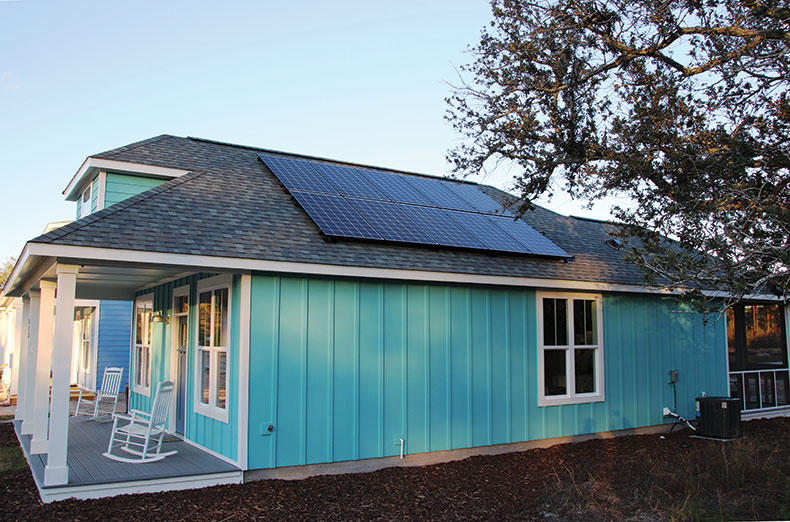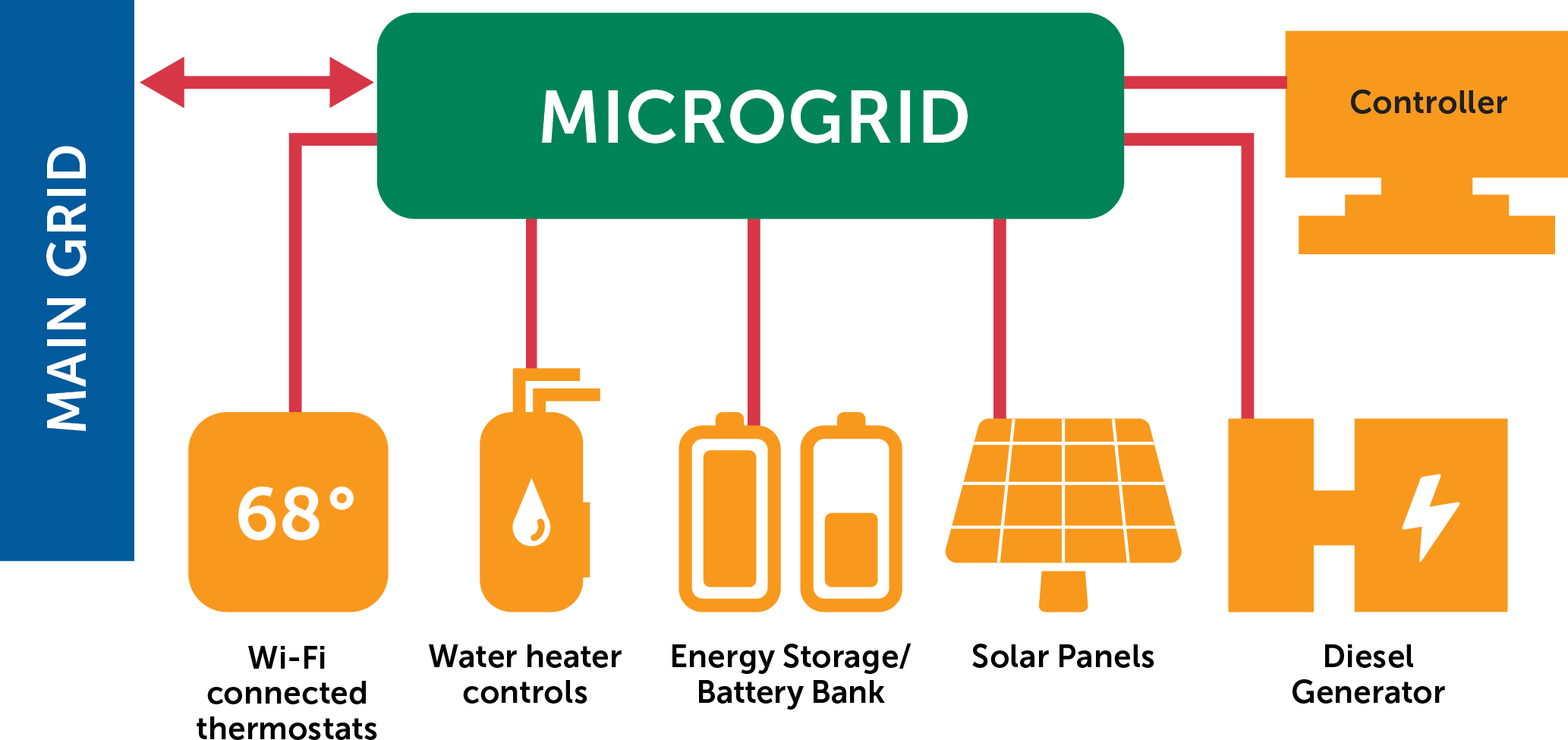An example of a microgrid
Reducing peak demand on electric systems is becoming more and more important, as is our desire to increase the use of renewable energy. At the same time, battery storage technology is improving, and we’re eager to improve the overall resiliency of electric systems. Microgrids offer a way for a community, area or facility to be somewhat autonomous, and take advantage of technological advances for their benefit as well as the common good.
A microgrid is a local energy grid with control capability, which means it can disconnect from the traditional grid and operate autonomously. A microgrid generally operates while connected to the grid, but importantly, it can break off and operate on its own using local energy generation during power outages, and to control peak demand. This can be very beneficial during major weather events and can play an important part in helping electric power distributors manage power loads.
Microgrids can be powered by distributed generators, batteries, and/or renewable resources like solar panels. Power generated can also be sold to distributors as a revenue stream. Beyond the load management and other environmental advantages, the resiliency afforded by microgrids is an asset to a growing number of emergency response buildings, and buildings that serve vulnerable populations.

Heron’s Nest
Heron’s Nest, an environmentally friendly village located in Shallotte near Village Point, features a microgrid. Designed by the Adams Group, the floor plans include programmable water heaters and thermostats, rooftop solar panels, a 50-kw solar field, and on-site battery storage, all designed to lessen the carbon footprint, promote sustainable living and control peak demand.
Brunswick Electric partnered with the Adams group to develop a pilot program assessing the value of a new water heater demand control technology, and worked with Vaughn water heaters for units that are equipped with Carina Technologies controls, which regulates the functionality of the water heater and has an LED display.


